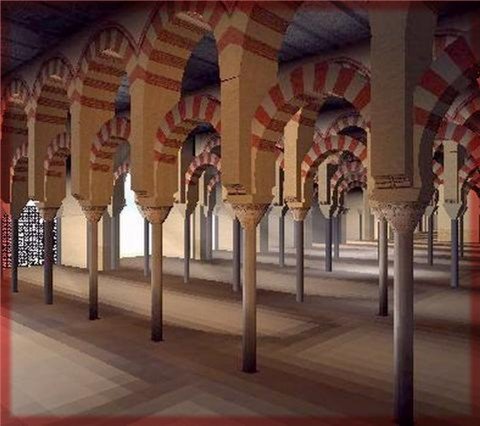Yes, yet another article on Latinas. This seems to be becoming a media fetish.
That aside, Eid can be one of the loneliest times for converts. While everyone else is spending the day with family and old friends, a convert is somewhere by him/herself probably trying to convince him/herself that he/she is having a good time. Eid, if one was a single convert, basically consisted of praying, listening to the khutbah, going through the motions of hugging everyone, then going home to an empty room. No one to talk to because everyone is busy with their families much like Christmas or Thanksgiving for Americans. When Zulayka Martinez left the Roman Catholic Church and converted to Islam six years ago, she was happy and at peace with her decision. But she felt like an outsider in her new faith. Looking back, she realizes her problem was more of a cultural and language barrier. Most members of Houston mosques were of Arab or Pakistani backgrounds. She didnأ¢â‚¬â„¢t know any Spanish-speaking Muslims. And as a single woman, she found it especially hard during holidays. Over time - especially in larger communities -steps taken to correct this situation to the best of their ability. Here in the DC area, for example, lots of converts got together in many different gatherings to eat, let their children play football, bowl, and other things that Americans like to do. In that time, Martinez has become the center of a close-knit group of Latina Muslims who support each other throughout Ramadan and the rest of the year. For todayأ festive Eid al-Fitr, the day that ends the month of fasting, she is organizing the women for morning prayers and a celebratory brunch During Ramadan, the women often met for sunset prayers at local mosques and to break the daily fast. They gathered weekly at different homes for festive Iftar dinners. As the early evening sky began to darken from rosy pink to deep blue on a recent Saturday, Martinez anxiously looked at her watch. They are always late,? she said. “We work on Mexican time? I had no idea that Mexicans worked on CPT too. Franco was a single mother with a son when she converted to Islam in 1998. Her father once made fun of her decision, but became so impressed with his daughter's devotion that he eventually converted to Islam, as did one of her brothers. Castillo-Shah converted to Islam seven years after marrying a Muslim. She had not planned to convert and said she never felt pressured to do so by her husband, a native of Pakistan . It took more than a year for Martinez to make her first Hispanic Muslim friend. Then, three years after her conversion, a class in Spanish for female converts and others interested in learning about Islam began at El Farouq, the mosque she most frequently attends. Now, Martinez said, she is meeting Latino converts, both new and old, almost weekly. Just recently she was at Starbucks when a young Hispanic woman asked about her head scarf. The stranger said she had always been interested in Islam. Several days later, she accompanied Martinez to evening prayers at a mosque. I still haven't gotten to the bottom of the media facination with Latino converts - particularly Latinas. It is like a novelty or something. I'm not Latino, but I don't think I'd like this if I were one. I suppose that that comes from my aversion to being anyone œpet convert Even at some of the DC area masjids there were Latino Day iftars (quite enjoyable, by the way, as the food was excellent) where a group of Latino converts cooked their ethnic foods and served it. That was nice, but I canأt help but wonder how White folk or Black folk Day would sound. Then again, there are so many Black American Muslims, that Black folk Day is everyday in some masjids. So, how would a White Day sound?
Subscribe to:
Post Comments (Atom)






No comments:
Post a Comment